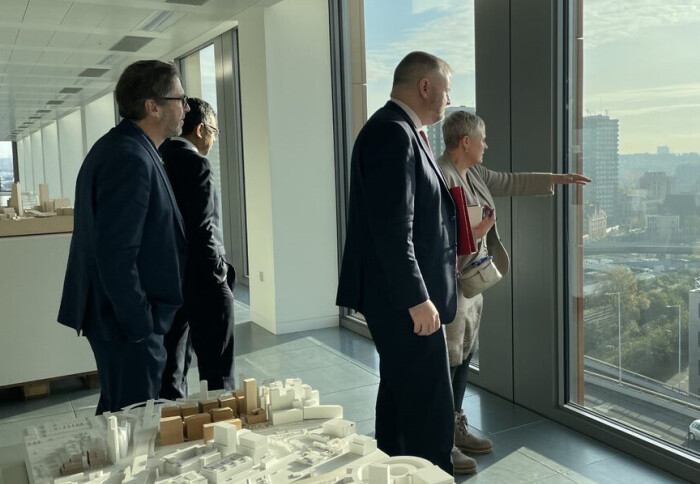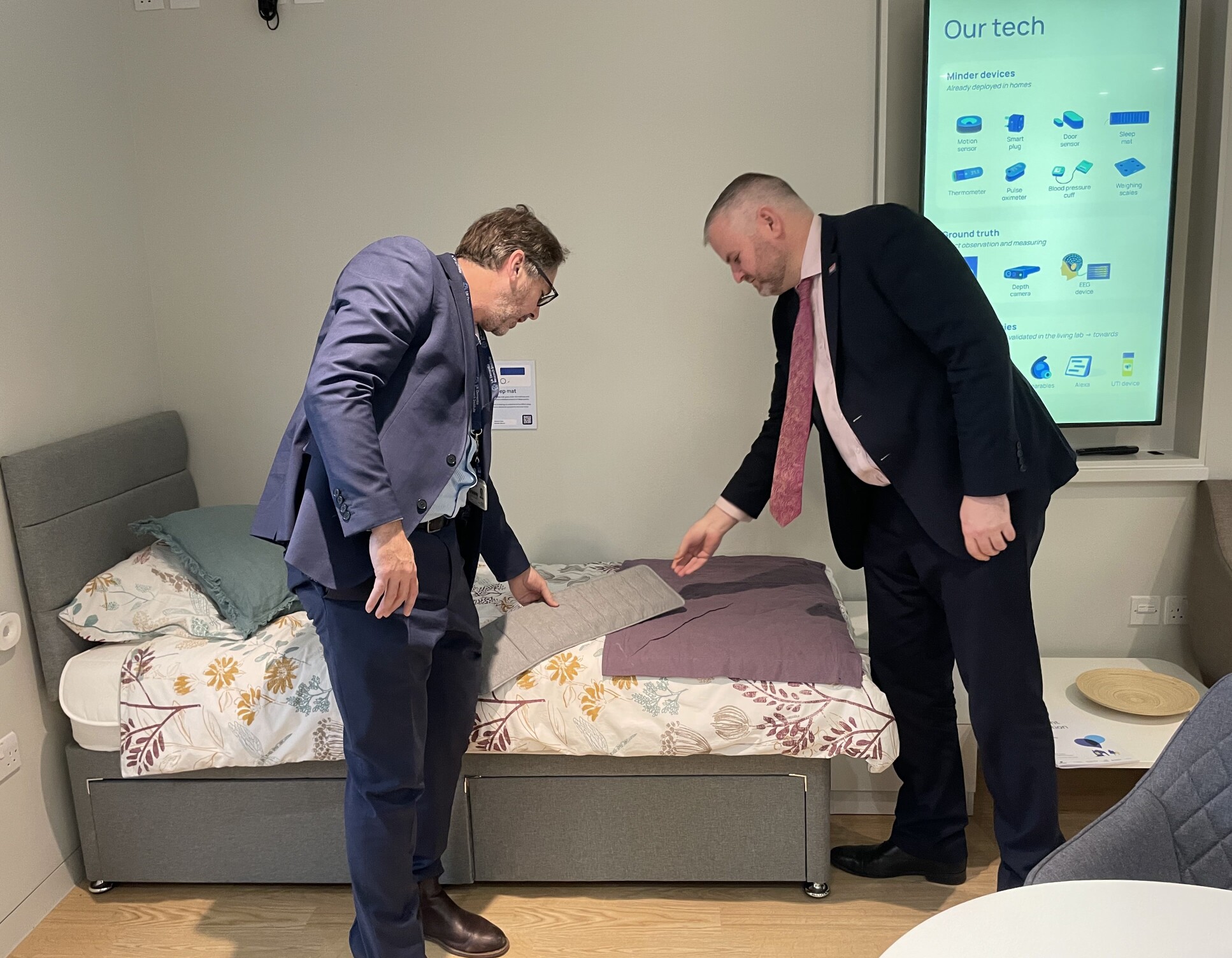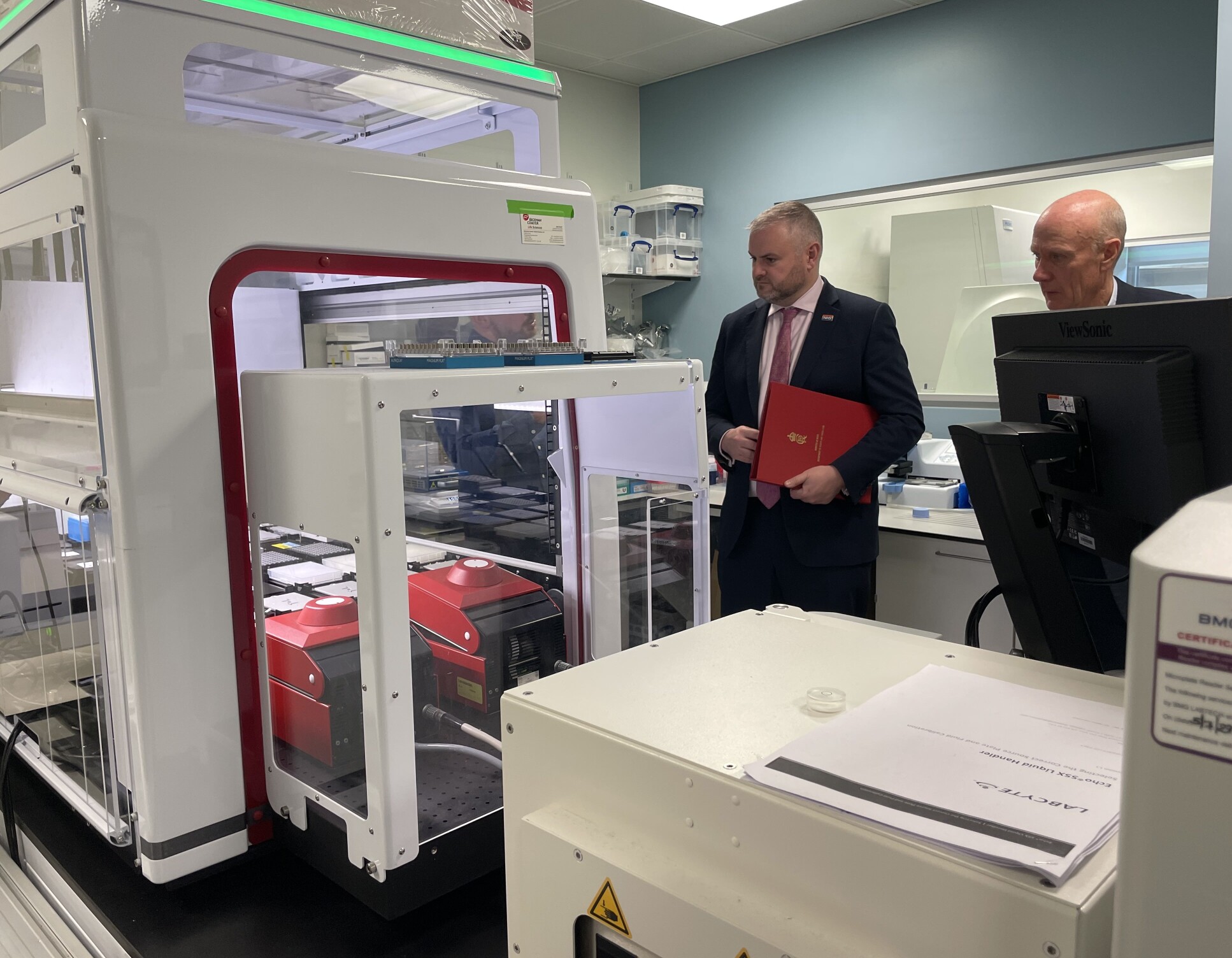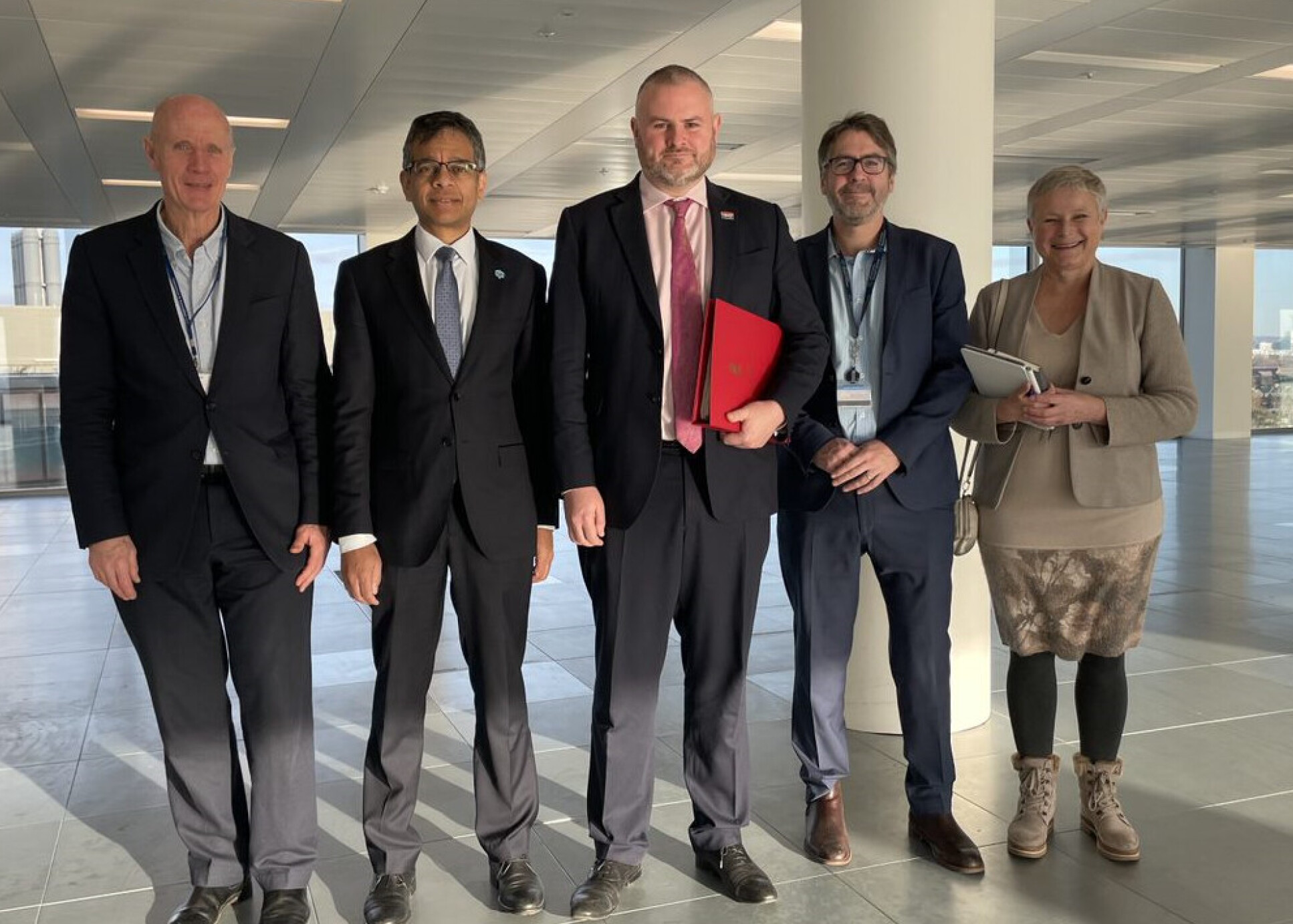Health Minister visits White City to see pioneering dementia research
by Nazza Ahmed

Health and Secondary Care Minister Andrew Stephenson MP visits the White City Campus
The Minister for Health and Secondary Care Andrew Stephenson MP visited the UK Dementia Research Institute at White City.
The new Minister for Health and Secondary Care Andrew Stephenson MP visited Imperial's White City Campus yesterday to see the work of the UK Dementia Research Institute Care Research and Technology Centre based at the Sir Michael Uren Hub. The Minister was hosted by Professor Deborah Ashby, Interim Dean of the Faculty of Medicine, and Professor Siddharthan Chandran, Director of the UK Dementia Research Institute.
The Minister met with Professor David Sharp, Director of the UK DRI Care Research and Technology Centre, who highlighted the work of the Centre which brings together scientists, doctors and engineers to develop a range of innovative smart technologies from artificial intelligence to sleep monitoring to enable people affected by dementia to live safely and independently in their own homes.
Established in 2017, the UK Dementia Research Institute at Imperial focuses on identifying what goes wrong in the brain at the very earliest stages of dementia and develops innovative treatments to correct these detrimental changes.

Touring the ‘test bed’ Living Lab, where ideas are tested and validated in a model home environment, the Minister saw how technological innovations such as a sleep sensor mat can monitor people’s sleeping patterns to check whether they are unsettled or having to get up a lot in the night - a common symptom experienced by people with dementia. He also saw how simple robotic devices can alert patients to safety risks such as spilt liquid on the floor or a cooker left on.
The Centre works directly with people living with dementia to help researchers develop technologies that allow for improved health and sleep and reduced confusion and agitation. The Minister saw a range of devices that allows the Centre to track a person’s behaviour and health, which can identify medical complications that may occur in the home.
SynbiCITE and the London Biofoundry – bringing synthetic biology capability to dementia research
Professor Paul Freemont, Group Leader of the UK DRI, then gave a tour of SynbiCITE, the UK’s Innovation and Knowledge Centre around synthetic biology hosted at Imperial. The Minister heard how the work of SynbiCITE brings synthetic biology capability to the UK DRI. Professor Freemont explained how his team are using synthetic biology methods to develop point-of-care diagnosis and testing that has the potential to transform the management of common infections in the elderly and vulnerable.
The Minister also toured the London Biofoundry, which is a core facility of SynbiCITE, to see work on the design and development of biosensors to detect infections in people with dementia and monitor dementia progression. The London Biofoundry is a cutting-edge synthetic biology research facility which tests and prototypes genetic designs in living cells for specific applications.

Overview of White City Campus
The Minister concluded his visit with an overview of the White City Campus from Professor Deborah Ashby, including the ongoing construction of the School of Public Health which is due to open in March 2024. The new building will provide an opportunity for Imperial to bring its medical faculty closer to the work going on at White City, including in life sciences, chemistry, biochemistry, and bioengineering. Professor Ashby explained how the Campus also works closely with clinical academics in nearby Hammersmith Hospital, part of Imperial College Healthcare NHS Trust.
The Minister also heard about how the Campus anchors the White City Innovation District which is fast emerging as a global economic and cultural hotspot in West London. The District is a hub for a thriving life sciences community and helps to address global challenges as well as create high-quality jobs and economic growth in the local area.

Article text (excluding photos or graphics) © Imperial College London.
Photos and graphics subject to third party copyright used with permission or © Imperial College London.
Reporter
Nazza Ahmed
Office of the President